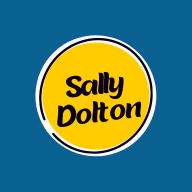For seniors looking to bolster their retirement income, reverse mortgages have emerged as a viable option. Often hailed as a financial tool to tap into home equity without the burden of monthly payments, reverse mortgages come with their own set of advantages and drawbacks. Let’s delve into the pros and cons to help you navigate this complex financial landscape.
Pros: Supplemental Income: One of the most significant benefits of a reverse mortgage is the ability to convert a portion of your home equity into cash, providing a valuable source of income during retirement.
No Monthly Payments: Unlike traditional mortgages, where borrowers make monthly payments to lenders, reverse mortgages offer the option to defer payments until the borrower moves out of the home or passes away. This can alleviate financial strain for retirees on fixed incomes.
Flexibility in Payment Options: Reverse mortgage borrowers have the flexibility to receive their funds in various ways, including a lump sum, monthly payments, a line of credit, or a combination of these options, allowing for customization based on individual financial needs.
Home Ownership Retained: Contrary to popular misconception, with a reverse mortgage, homeownership remains with the borrower as long as they fulfill their obligations, such as paying property taxes and homeowner’s insurance and maintaining the property.
Non-Recourse Loan: Reverse mortgages are non-recourse loans, meaning that borrowers or their heirs are not personally liable for any shortfall if the home sells for less than the loan balance. The lender can only collect from the proceeds of the home’s sale.
Cons: Accruing Interest & Fees: While not making monthly payments can be advantageous, interest and fees on a reverse mortgage accrue over time, potentially reducing the equity available to borrowers and their heirs.
Impact on Inheritance: Reverse mortgages can diminish the inheritance that homeowners pass on to their heirs since the loan balance must be repaid upon the homeowner’s death or when the home is sold.
Complexity and Costs: Reverse mortgages often come with complex terms and fees, including origination fees, closing costs, and mortgage insurance premiums. It’s crucial for borrowers to fully understand these costs before proceeding.
Potential Risk of Default: Failure to meet the loan requirements, such as maintaining the property and paying property taxes and insurance, can lead to default, resulting in foreclosure and the loss of the home.
Limits on Eligibility: Not everyone is eligible for a reverse mortgage. Borrowers must be at least 62 years old, own their home outright or have a significant amount of equity, and live in the home as their primary residence.
Conclusion: Reverse mortgages can offer financial relief and flexibility for seniors seeking to leverage their home equity in retirement. However, they also come with inherent risks and complexities that require careful consideration. Before pursuing a reverse mortgage, it’s essential to weigh the pros and cons, consult with a financial advisor, and explore alternative options to ensure it aligns with your long-term financial goals and needs. If you haven’t yet begun looking into a reverse mortgage, now is the perfect time to start. We are here to assist you with finding a reverse mortgage specialist, that can educate you throughly so you can make a informed decision, and if you decide to proceed, we are here as a mobile notary services to ensure your reverse mortgage documents are executed professionally and with care and confidentiality.
